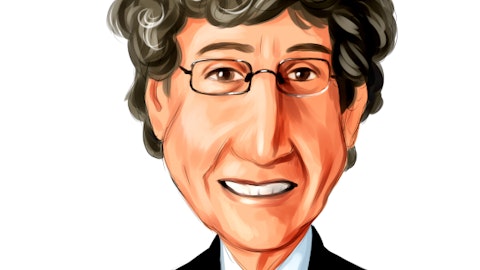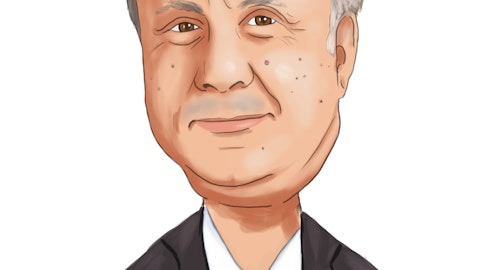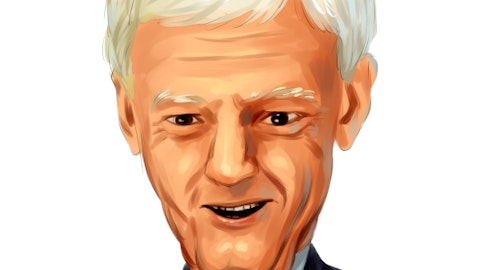2. Bank of America Corporation (NYSE:BAC)
Percentage of Berkshire Hathaway’s 13F Portfolio: 14.61%
Berkshire Hathaway’s Stake Value: $42,878,771,000
Number of Hedge Fund Holders: 72
Bank of America Corporation (NYSE:BAC) is Berkshire Hathaway’s second-largest holding. At the end of the September quarter, the bank stock represents 14.6% of Warren Buffett’s portfolio. Overall, there were 72 hedge funds that held a total stake of $46.5 billion in the company in the third quarter of 2021.
The company’s profit increased 58% to $7.7 billion in the third quarter, indicating that the bank’s borrowing business is beginning to recover from a pandemic lows. Total revenue at the end of the September quarter grew 12% year over year to $22.8 billion and beat revenue estimates by $1.16 billion.
On November 23, Piper Sandler analyst Jeffery Harte increased his price target for Bank of America Corporation (NYSE:BAC) to $53 from $50. According to Harte, BAC has demonstrated the ability to gain market share efficiently while generating higher risk-adjusted returns. The analyst kept an Overweight rating on the bank stock.
In its Bill Nygren third-quarter 2021 market commentary, Oakmark Funds mentioned Bank of America Corporation (NYSE:BAC) and discussed its stance on the firm. Here is what the fund said:
“Earlier this year, one of our holdings, Bank of America, announced that it was raising its minimum hourly wage from $15 to $20 and would increase it to $25 by 2025. The company received great press for placing the well-being of its employees above profits. But was it really either/or? Bank of America’s chief human resources officer spoke to the bigger picture: “A core tenet of responsible growth is our commitment to being a great place to work…that includes providing strong pay and competitive benefits to help them and their families so that we continue to attract and retain the best talent.” Bank of America understood that engaged, high-caliber employees are more productive, less prone to turnover and, therefore, less expensive in the long run. Increasing the pay for employees wasn’t elevating employees above shareholders; it was the right thing to do for employees and for shareholders.
If an increase to $20 was good, why stop there? Why not $50 per hour? Because the benefits the business receives a $50 don’t justify the expense. The bank would no longer be able to price its products competitively and would lose business. The employees would “win” in the short term, but eventually, the lost business would lead to job cuts, meaning both employees and shareholders would lose. The negative effects of stakeholder overreach are no different than when CEOs overreach to inflate short-term profits. Both hurt shareholders and stakeholders.”





